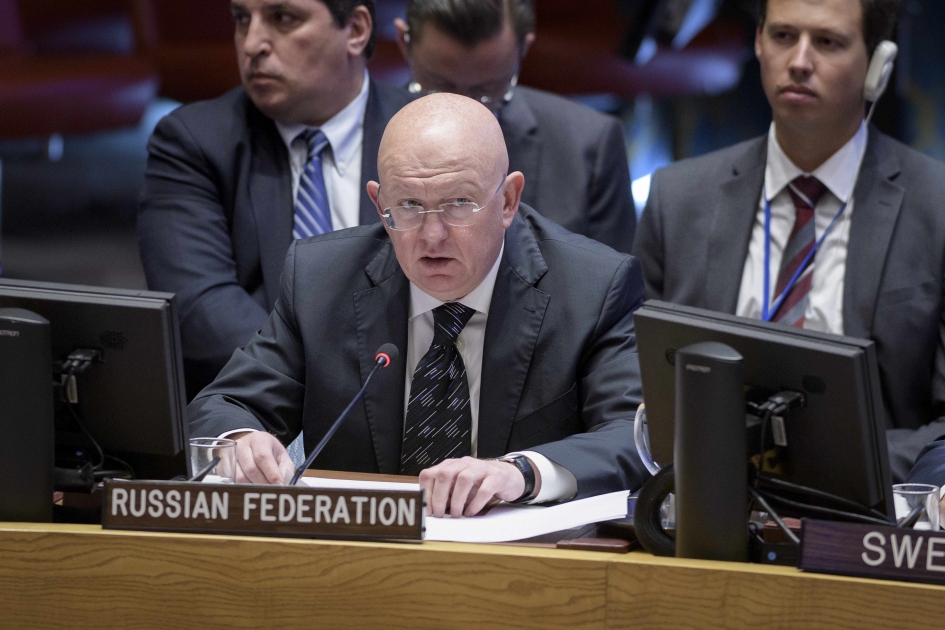Statement by Ambassador Vassily A. Nebenzia, Permanent Representative of the Russian Federation to the United Nations, at the Security Council meeting on The situation in Guinea-Bissau
At the outset, we would like to welcome the presence here with us today of Prime Minister Aristide Gomes of Guinea-Bissau.
We would also like to congratulate Mr. José Viegas Filho, Special Representative of the Secretary-General and Head of the United Nations Integrated Peacebuilding Office in Guinea-Bissau (UNIOGBIS), on his appointment to this important role. We wish him every success in his work and thank him for his briefing.
We have listened carefully to the information shared with us today by Ambassador Anatolio Ndong Mba, Chair of the Security Council Committee established pursuant to resolution 2048 (2012) concerning GuineaBissau, Ambassador Mauro Vieira, Chair of the GuineaBissau configuration of the Peacebuilding Commission, and Ms. Tavares Pinto. We note the significant progress that has been made in helping Guinea-Bissau to emerge from its political crisis following the decision by President José Mário Vaz to appoint a new Prime Minister and form a consensus Government.
We encourage all the political forces in the country, despite their ongoing disagreements, to work with the Cabinet to achieve a sustainable settlement. We support the work of the country’s leaders to prepare for the elections planned for November. We are pleased that the United Nations Integrated Peacebuilding Office in Guinea-Bissau is making a significant contribution to supporting the electoral processes, including by mobilizing means from international partners. We support the mission’s intention to facilitate constitutional reform, as noted in the Secretary-General’s report (S/2018/771), and dialogue should begin on that as soon as possible.
In that regard, the time between the parliamentary and presidential elections would be very suitable. We continue to believe that this measure is critical from the point of view of resolving the issues around the GuineaBissau Constitution and ensuring the prevention of a relapse into political turbulence there.
We are grateful to the Economic Community of West African States (ECOWAS) for promoting a political settlement in Guinea-Bissau. We note the decision of ECOWAS to remove the sanctions it imposed on Bissau-Guineans in February, which we think is a very timely step.
However, we believe that any arrangements for the country’s future should be based on the desires of its own citizens, without pressure or the imposition of ready-made solutions from outside. Only through a response to its genuine national interests can they play a positive role in the work of helping the country emerge from its long-standing crisis.
